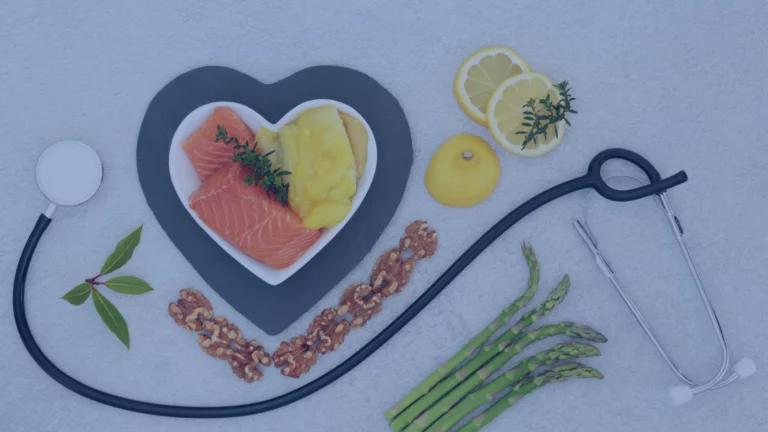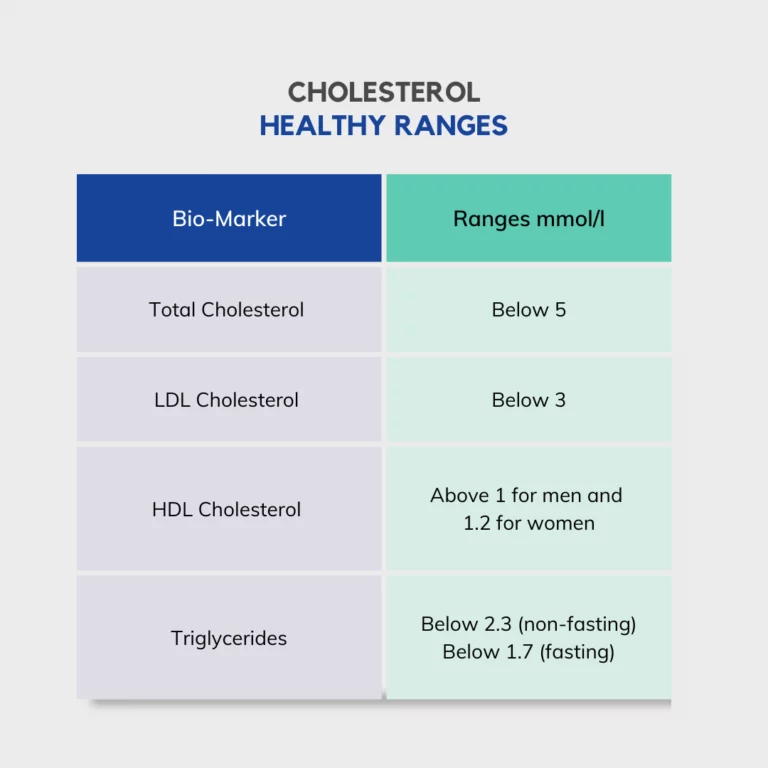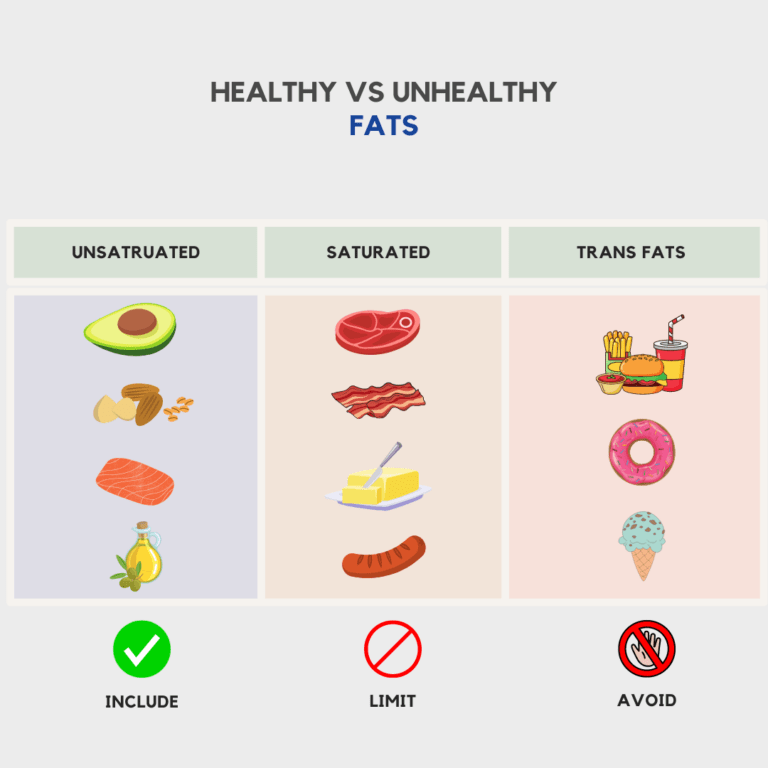
The Ultimate Guide to a Low Cholesterol Diet: What You Should Eat
Advice From A Dietician
Daniel Murphy // Dietitian, Cork // March 2024

What is Cholesterol?
If you’re looking to improve your heart health, a low cholesterol diet is a great place to start. An abundance of research shows that reducing your cholesterol intake can help lower your risk of heart disease and stroke. Navigating the world of low cholesterol eating can be daunting. That’s why we’ve created the ultimate guide to help you understand what you should eat on a low cholesterol diet.
Cholesterol is a waxy substance found in your body and certain foods. While it is essential for the production of hormones and the formation of cell membranes, high levels of cholesterol in the blood can lead to a buildup in the arteries, increasing the risk of heart disease and stroke.
A low cholesterol diet aims to reduce the levels of LDL (low-density lipoprotein) cholesterol, often referred to as “bad” cholesterol, in the body. This can be achieved by limiting the intake of foods high in saturated and trans fats, which raise LDL cholesterol levels.
It’s important to note that not all cholesterol is bad. HDL (high-density lipoprotein) cholesterol, often referred to as “good” cholesterol, helps remove LDL cholesterol from the blood. By following a low cholesterol diet, you can improve the ratio of LDL to HDL cholesterol, promoting a healthier cardiovascular system.
So, whether you’ve been advised by your doctor to follow a low cholesterol diet, or you’re simply interested in taking proactive steps towards a healthier lifestyle, this guide will provide you with the knowledge and tools to make informed choices. Let’s get started on your journey to better heart health!
Table of Contents
Knowing your Cholesterol Numbers
High Cholesterol is defined as having a cholesterol level of 5mmol/l or above. Often your GP will start to mention statins or medications at this point so best to consult with your GP first.
HDL (High-Density Lipoprotein):
- HDL is often referred to as “good cholesterol” because it plays a protective role in cardiovascular health. It is a type of lipoprotein that transports cholesterol from the bloodstream to the liver for processing and excretion.
- High levels of HDL are associated with a lower risk of heart disease because it helps remove excess cholesterol from the arteries, preventing the buildup of plaque.
LDL (Low-Density Lipoprotein):
- LDL is often referred to as “bad cholesterol” because elevated levels of LDL can contribute to the development of atherosclerosis or hardening of the arteries.
- It is a type of lipoprotein that carries cholesterol from the liver to cells throughout the body.
- High levels of LDL are associated with an increased risk of heart disease because it can deposit cholesterol in the arterial walls, leading to plaque formation and reduced blood flow.
- Triglycerides are a type of fat found in the bloodstream and stored in fat cells.
- They are derived from the food we eat and are also produced by the body.
- Elevated levels of triglycerides can be a risk factor for heart disease, especially when combined with other risk factors.
- Triglycerides are stored as energy in fat cells and are released into the bloodstream when the body needs energy between meals.

Foods to Limit on a Low Cholesterol Diet
A low cholesterol diet plays a crucial role in maintaining heart health and reducing the risk of cardiovascular diseases. Research has consistently shown that a diet high in cholesterol and saturated fats can lead to elevated LDL cholesterol levels, which can contribute to the development of atherosclerosis and other heart-related conditions.
1. Saturated fats: Foods high in saturated fats should be limited. These include fatty cuts of meat products, butter, lard, and coconut oil. Opt for leaner cuts of meat, low-fat dairy options, and healthier fats like olive oil or avocado oil.
2. Trans fats: Trans fats are artificial fats found in many processed and fried foods. They can raise LDL cholesterol levels and increase the risk of heart disease. Read food labels carefully to avoid products that contain trans fats, such as margarine, fast food and many packaged snacks.
The main foods we want to limit are highly processed foods, high fat foods, and confectionary. These include:
- Processed red meats- sausages, bacon, fast food, cured meats (salami).
- Confectionary- Sweets, cakes, biscuits.
- High Fat Foods: Butters, spreads, deep fried foods.
By adopting a low cholesterol diet, you can actively manage your cholesterol levels and improve your overall cardiovascular health. This dietary approach focuses on consuming foods that are low in cholesterol and saturated fats while incorporating heart-healthy nutrients and dietary fiber.
A low cholesterol diet not only helps lower LDL cholesterol levels but also promotes weight management, reduces blood pressure, and improves blood sugar control. By making simple yet effective changes to your eating habits, you can enhance your well-being and reduce the risk of heart disease.
Foods to include in a Low Cholesterol Diet
When it comes to a low cholesterol diet, it’s not just about limiting certain foods. It’s equally important to focus on incorporating heart-healthy foods that can help lower LDL cholesterol and improve overall cardiovascular health. Here are some key foods to include in your low cholesterol diet:
1. Fruits and vegetables: These are rich in dietary fibre, antioxidants, and various vitamins and minerals. Aim for a colourful variety, as different fruits and vegetables offer different nutritional benefits. Berries, citrus fruits, leafy greens, and cruciferous vegetables are particularly beneficial.
2. Whole grains: Opt for whole grains instead of refined grains. Whole grains like oats, quinoa, brown rice, and whole wheat bread are excellent sources of fibre, which can help reduce LDL cholesterol levels.
3. Legumes: Beans, lentils, and chickpeas are packed with fibre and plant-based protein. They are also low in saturated fat and can be a great replacement for animal-based proteins in your meals.
4. Nuts and seeds: Almonds, walnuts, flaxseeds, and chia seeds are rich in heart-healthy fats, fibre, and antioxidants. They can be enjoyed as a snack or added to various dishes for added nutritional benefits.
5. Fatty fish: Fish like salmon, mackerel, and sardines are high in omega-3 fatty acids, which have been shown to reduce inflammation and improve heart health. Aim to incorporate fatty fish into your diet at least twice a week.
By including these foods in your low cholesterol diet, you can nourish your body with essential nutrients while actively working to lower LDL cholesterol levels and promote heart health.
Struggling with High Cholesterol?
Incorporating Healthy Fats into a Low Cholesterol Diet
While it’s important to limit saturated and trans fats, it’s equally crucial to incorporate healthy fats into your low cholesterol diet. Healthy fats, such as monounsaturated and polyunsaturated fats, can actually help improve your cholesterol profile and protect your heart.
1. Monounsaturated fats: These fats can be found in foods like olive oil, avocados, nuts, and seeds. They have been shown to increase HDL cholesterol levels while lowering LDL cholesterol levels, reducing the risk of heart disease.
2. Polyunsaturated fats: Omega-3 and omega-6 fatty acids are types of polyunsaturated fats that are essential for overall health. They can be found in fatty fish, walnuts, flaxseeds, and soybean oil. Omega-3 fatty acids have been particularly associated with heart health benefits.
Incorporating these healthy fats into your low cholesterol diet can add flavour and variety to your meals while promoting heart health. Use olive oil as your primary cooking oil, enjoy a handful of nuts as a snack, and include fatty fish in your weekly meal plan.

Tips for Dining out on a Low Cholesterol Diet
Meal planning and preparation are key components of maintaining a successful low cholesterol diet. By taking the time to plan your meals and prepare them in advance, you can ensure that you have nutritious options readily available and avoid making impulsive choices that may not align with your dietary goals.
Here are some tips to help you with meal planning and preparation:
1. Create a weekly meal plan: Plan your meals for the week ahead, taking into consideration your nutritional needs and preferences. Include a variety of fruits, vegetables, whole grains, lean proteins, and healthy fats.
2. Make a grocery list: Based on your meal plan, create a list of all the ingredients you’ll need. Stick to the list when you go grocery shopping to avoid impulse purchases.
3. Prep ingredients in advance: Spend some time prepping ingredients, such as washing and chopping fruits and vegetables, cooking whole grains, and marinating proteins. This will save you time during the week and make it easier to put together healthy meals.
4. Batch cook: Prepare larger quantities of certain meals and freeze them in individual portions. This way, you’ll have healthy, homemade options available when you’re short on time or don’t feel like cooking.
5. Pack your lunch: If you’re away from home during the day, pack your lunch and snacks to avoid relying on convenient but unhealthy options. Invest in a good set of reusable containers to make packing your meals a breeze.
By incorporating meal planning and preparation into your routine, you can set yourself up for success on your low cholesterol diet journey.
Working with a Dietitian Near You: What to Expect
Engaging the services of a dietitian focused on lowering cholesterol offers numerous advantages. These experts provide personalised guidance tailored to your unique health profile and goals. At Apex Nutrition, we educate you about the impact of different foods on cholesterol, aid in meal planning, and offer support for behaviour change. With regular check-ins and adjustments, they help you stay on track. We as dietitians also take a comprehensive approach, considering your overall health, lifestyle, and dietary concerns, ensuring both safety and effectiveness in cholesterol management.

Success Stories from Apex Nutrition
Meet Breeda, a vibrant 56-year-old who faced a pivotal moment in her health journey. After a routine check-up, her GP recommended medication to lower her cholesterol, which stood at 5.7 mmol/l. Concerned about potential side effects and determined to explore other options.
Breeda embarked on a journey to tackle her cholesterol levels through nutrition. Breeda decided to seek the guidance of a dietitian at Apex Nutrition who understood the science behind cholesterol management. Working closely with her dietitian, she received personalised advice and a tailored nutrition plan. We eventually got her cholesterol to around 4.8 mmol/l.
Breeda’s Cholesterol Story
“I was initially overwhelmed, by my GP saying I need to take statins. I felt medication was for older people and not me. Dan educated me about the impact of different foods on cholesterol levels and helped me understand the role of fats and fibre in my diet.”
Breeda’s dietary transformation began with simple changes. She incorporated more whole grains, like oats and brown rice, into her meals, which were rich in soluble fibre known to lower LDL cholesterol. Fruits and vegetables became her allies, especially antioxidant-packed berries and leafy greens.
“I was amazed at how delicious and satisfying these changes could be,”. “I realised I didn’t have to sacrifice flavour for my health.” Lean proteins such as poultry and fish replaced some of her red meat intake. Healthy fats, such as avocados and nuts, became staples, and she started using olive oil for cooking.
“Having someone to hold me accountable and keep me motivated made all the difference,”. The results were astounding. After a few months of dedicated effort, Breeda’s follow-up blood test showed a remarkable drop in her cholesterol levels. Her LDL cholesterol, which was initially at 5.7, had decreased to an impressive 4.8. Breeda couldn’t be happier with the outcome. Through her determination, the support of her dietitian, and the transformative power of wholesome food choices, she not only lowered her cholesterol but also embraced a healthier and more vibrant life.
Frequently Asked Questions
Foods high in soluble fibre such as oats, barley, legumes, and fruits like apples and citrus fruits are effective. Additionally, including healthy fats from sources like nuts, seeds, and avocados can help.
Yes, dietary changes can be highly effective in lowering cholesterol levels, especially when combined with other healthy lifestyle habits like regular exercise and not smoking.
The Mediterranean diet emphasises fruits, vegetables, whole grains, fish, olive oil, nuts, and seeds, which are all beneficial for heart health and can help lower cholesterol levels.
Yes, fruits like apples, grapes, strawberries, and citrus fruits, as well as vegetables like spinach, kale, and Brussels sprouts, are rich in soluble fiber and antioxidants that can help lower cholesterol.
Switching to spreads like Benecol can be an effective change. As well as this, it’s important to make additional changes to diet and lifestyle but this is a great start.
Yes, monounsaturated fats found in foods like avocados and olive oil can help increase HDL (“good”) cholesterol levels and reduce LDL cholesterol when used in place of saturated and trans fats.
Limiting intake of saturated fats found in fatty meats, full-fat dairy products, and processed foods, as well as avoiding trans fats, can help improve cholesterol levels.
Focus on incorporating a variety of plant-based foods, choose lean protein sources, use healthier cooking methods like baking, steaming, or grilling, and limit added sugars and salt in your meals.

